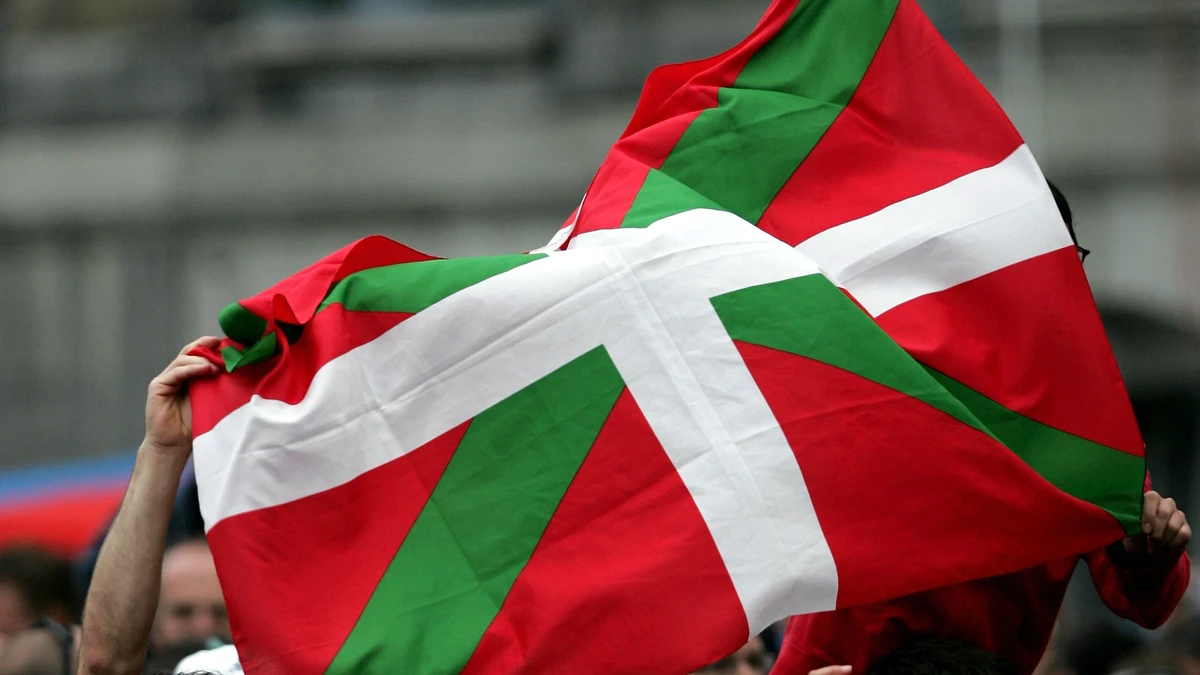
Not long ago, there has also been talk Basque in the Congress of Deputiessince the use of the co-official languages in the hemicycle. But the language of the Basque Country was already on the streets before: according to data from the Euskal Estatistika Erakundea (Basque Statistics Institute), 62.4% of the people residing in the community in 2021 had some knowledge of the language. Of these, 936,812 were considered basque —that is, they speak and understand Basque well—and 412,996 quasi-Basque speakers, with sufficient knowledge to understand but with difficulties speaking the language.
In this scenario, the Institute of Adult Literacy and Reeuskaldunization (HABE) of the Basque Government has launched a digital platform to learn Basque online, from any device, at any time and in a simple way. This is Ingura, a tool with “a multitude of video-based exercises” to facilitate the practice of spoken Basque. After two years developing the platform, Ingura offers the possibility of working in four languages: Basque, Spanish, French and English, and the idea is that it offers courses from level A1 to level C1 progressively.
Each course consists of two sections, one open for which it will only be necessary to register, and another under registration, “practically” free, according to the Basque Government. “The idea is bring citizens closer to the world of Basque and encourage them to undertake their transition from user to student, attracting them to participatory learning of Basque through Euskaltegis,” they explain. Euskaltegi is what Basque language teaching centers aimed at adults are known in the Basque Country. It is worth remembering that both In the Basque Country, as in Navarra and La Rioja, there are also ikastolaswhich are educational centers that have Basque as their primary language.
The beginning of Ingura, with Basque level A1
For this year 2024, Ingura offers a A1 level course. It is a course made up of 60 units, all designed so that they can be done online, both individually and in groups, “in a tutored manner.” The course consists of 100 teaching hours. To prepare the course, “the methodological lines of the Basic Curriculum for Euskaldunization for Adults have been followed, from a communicative and action-oriented point of view.” These are the contents of the course:
- Situation video: a “humorous and close” communicative situation is offered, common in everyday life, using pronunciation, rhythm and real and natural language. The purpose of this video is to observe and work on the language, the topic and the communicative event while the student can speak and write from the first moment.
- Explanatory video: a teacher explains the contents of the unit, as well as several examples.
- Self-correction exercises: grammar, vocabulary, language and cultural content activities.
Is the Basque course free?
The first section, with the first 30 units, is totally free. It is only necessary to register in the environment, from the inguraonline.eus portal. The 30 situational and explanatory videos are available with subtitles in the four languages described above, and they also include exercises to work on grammar, vocabulary, speech and cultural content.
The complete course can be accessed at academic year 2024-2025, for which you will have to enroll in a euskaltegi. Although this part of the course is not completely free, the Basque Government has opened a new line of subsidies to cover expenses for adults who wish to enroll in this A1 Basque course, offering them “at a more affordable price”, following the objective of the current legislature to “promote free tuition for adult students.”
Is it difficult to learn Basque?
Let’s be clear: Basque is not one of the easiest languages to learn for a Spanish speaker. Although the truth is that, in addition to the proximity of the origin of the new language to the mother tongue, other factors also come into play such as personal interest, the stage of life in which one begins to learn a language or the learning context, in addition of the student’s innate ability. It must be remembered that many studies indicate that people who are born in bilingual environments and are educated in several languages have an easier time learning new languages in their lives.
Beyond all this, it would be correct to say that It is not a simple language, mainly because its roots have little or nothing to do with the Romance languages. According to a study published in 2009, in fact, it could be considered one of the most difficult languages to learn in the world. However, it has many factors to say that it is not at all complicated. For example, its pronunciation is not difficult, since it is pronounced practically the same as it is written, like Spanish. There are hardly any gender differences, there are very few irregular verbs and the accentuation is very similar to Spanish, in addition to the fact that accents are not used.
Source: Lasexta
Bruce is a talented author and journalist with a passion for entertainment . He currently works as a writer at the 247 News Agency, where he has established himself as a respected voice in the industry.












